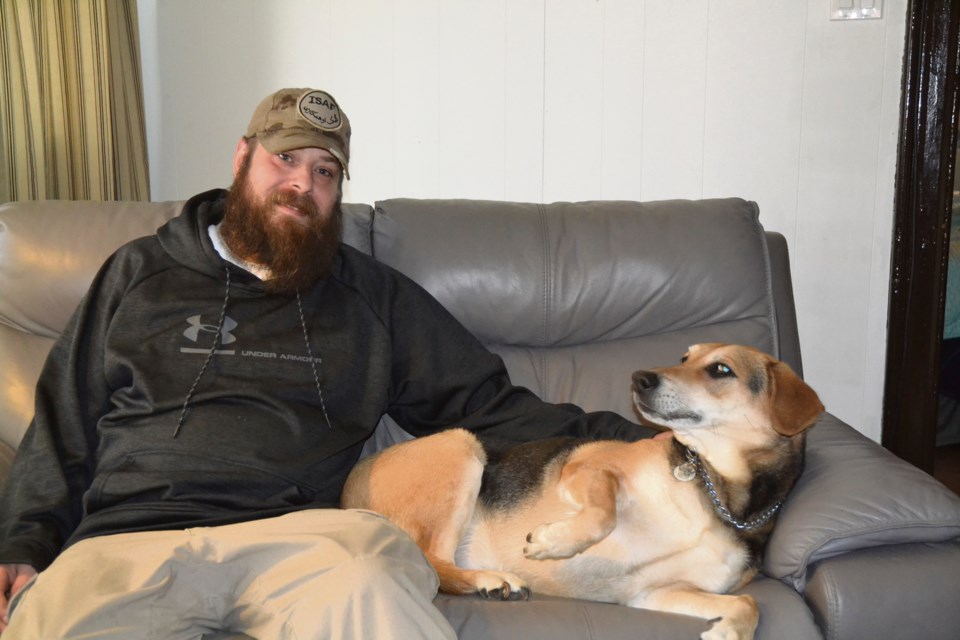A Virden veteran who served in Afghanistan says he and other soldiers were forced by the military to take the anti-malaria drug Mefloquine, which is known to cause debilitating and possibly permanent health effects.
Their claims are part of a lawsuit, a mass tort against the Canadian government, which includes hundreds of plaintiffs signed up so far and more expected.
One of them is Geoff Logue, 34, of Virden. He went to Afghanistan in 2008 and was ordered to take Mefloquine to prevent malaria. Since then, he says he’s suffered from a wide range of side effects even though he hasn’t taken the drug in 11 years.
“Hallucinations, suicidal thoughts, confusion, paranoia, extreme haunting nightmares that last during the day, numbness, muscle twitches, and light sensitivity.” Logue says he has attempted suicide and wound up in hospital multiple times since Afghanistan.
Some doctors have diagnosed veterans like Logue with PTSD because the side effects are similar to those of Mefloquine.
“I was diagnosed by a military psychiatrist in Kandahar Hospital with PTSD. It has similar symptoms but a few differences with Mefloquine, like balance loss. It eats your brain. You wind up with dementia, and there’s no cure for it.”
The Mefloquine story was in the news last month when retired Lieutenant-General Romeo Dallaire, who led the 1993 UN peacekeeping mission to Rwanda, added his name to the law suit.
He wrote, “The drug, Mefloquine, affected my eyesight, sleep and frame of mind… As early as January 1994, I had been in touch with Ottawa to say this drug was affecting my ability to function, and I wanted to stop taking it. Their response was that my doing so would be considered a self-inflicted wound: a chargeable offence.”
Logue recalls, “We weren’t allowed to see the warning label. And we had to stand in a line while they watched us swallow it to make sure we did.” The negative side effects began within days of taking the first dose, he says.
The drug was first given to Canadian soldiers heading to Somalia in the early ‘90s and side effects started being reported soon after.
But according to the official Mefloquine lawsuit website, the Canadian government kept giving the drug to troops in subsequent conflicts in Rwanda and Afghanistan, failing to tell soldiers about the potentially permanent side effects.
At Logue’s home in Virden where he lives with his dog and cat, he contemplates his military memorabilia hanging on the wall. The pride in his voice turns to anger and frustration as he talks about returning his medals to the Queen in protest over his “poisoning” by Mefloquine and his struggle to get treatment.
“It’s difficult to accept the fact that I’m 34 years old and before I’m 40 I’ll probably be in a long term care home…. I’m living in hell constantly.”
Mefloquine is no longer used by the Canadian military but it is still on the market in Canada.
About Mefloquine
During the 1990s, military personnel were prescribed a weekly anti-malarial drug called Mefloquine (also known as Lariam), when deployed to regions where malaria was common. Troops began reporting serious adverse side effects at that time, but Health Canada didn’t update the warning labels until 2016 to include serious side effects like anxiety, paranoia, depression, hallucinations, psychotic behaviour and thoughts of suicide that could last for months or years. Veterans are now seeking compensation for negligence on the part of the Canadian government. See: Mefloquineawareness.ca and Mefloquinelawsuit.com




